News
KUBS News
120 Years of the Business School, Discussing the Next 60 Years
To commemorate its 120th anniversary, Korea University Business School (KUBS) hosted a talk concert titled “Mapping the Future: Business Society in 60 Years” on Friday, September 26. The event took place on the Floating Floor of the third floor in the Hyundai Motor Hall, featuring a congratulatory address by Young-Seop Lee, Chair of the KUBS Alumni Association, and overall moderation by Hojung Shin, Committee Chair. In addition, talent development directors from thirty of Korea’s leading corporations attended as VIP guests, underscoring the event’s mission to explore the future of business and management education together.
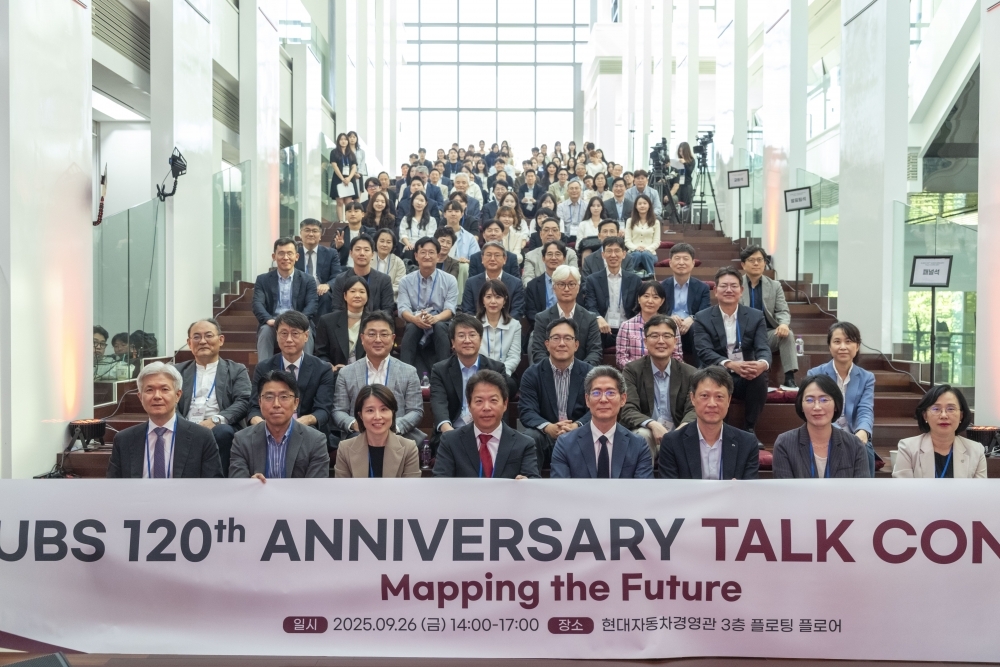
Chair Lee remarked, “I would like to express my gratitude to everyone who joined us today in celebrating this meaningful 120th anniversary.” He added, “In a time of intense competition, it is challenging to look far ahead, but reflecting on what will change and what will remain constant is a worthwhile endeavor. Building on our achievements to date, we must continue nurturing individuals who possess the resilience to thrive amid an ever-changing environment.”
Rather than simply reflecting on the past, the event served as an opportunity to ask how the next sixty years should be envisioned. By linking the past, present, and future, KUBS opened a new chapter of challenge and innovation.
The Path of Business Administration in the Course of Civilizational History
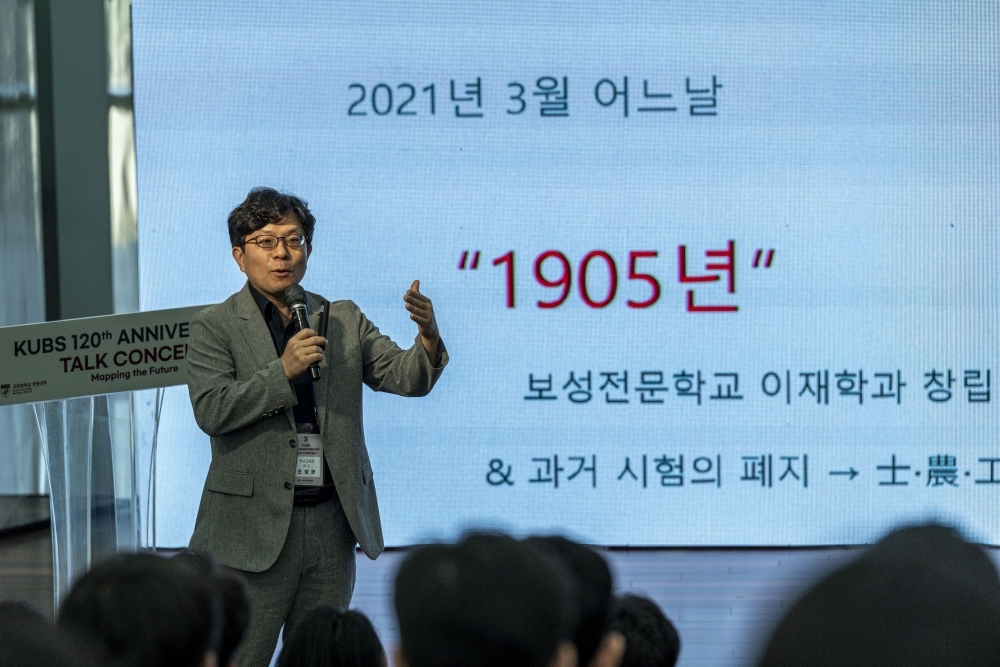
The first session focused on historical reflection. Professor Youngheon Cho of the Department of History Education at Korea University introduced his book The Path of Business Administration: 120 Years of Korea University Business School Seen through Civilizational History, emphasizing that “there have always been turning points in history, and each has brought about great change.” He interpreted the abolition of China’s civil service examination in 1905 as a key turning point in East Asian history, explaining how this shift came to be viewed as the starting point of modern business administration. He added, “From the objective perspective of an outsider rather than an insider, I sought to examine business administration within the broader context of civilizational history—not merely as a chronological record, but as a subject of scholarly inquiry.”
Students’ Imagination Unfolds: Envisioning Business 60 Years into the Future
On the next stage, students’ imaginations came to life under the theme “Mapping the Future.” Five finalist teams, selected through a preliminary video screening, envisioned what society and business might look like 60 years from now—each approaching the theme from a different perspective, including education, AI, space, death, and the ocean.
The grand prize went to Team ‘Badaieum’ (SeaConnect), composed of students majoring in Business Administration and English Language & Literature. Starting from the premise of “a Korean Peninsula submerged by the end of the 21st century,” the team proposed Oceanus Korea, the world’s first marine city. This eco-friendly floating metropolis—interconnecting residential, industrial, research, and lifestyle districts—was recognized as a visionary solution enabling humanity to pursue both survival and prosperity in the era of climate crisis. The judging panel commended the team for “addressing a global challenge like climate change with a creative and concrete urban model,” while the team also received enthusiastic support from the audience in the final vote.
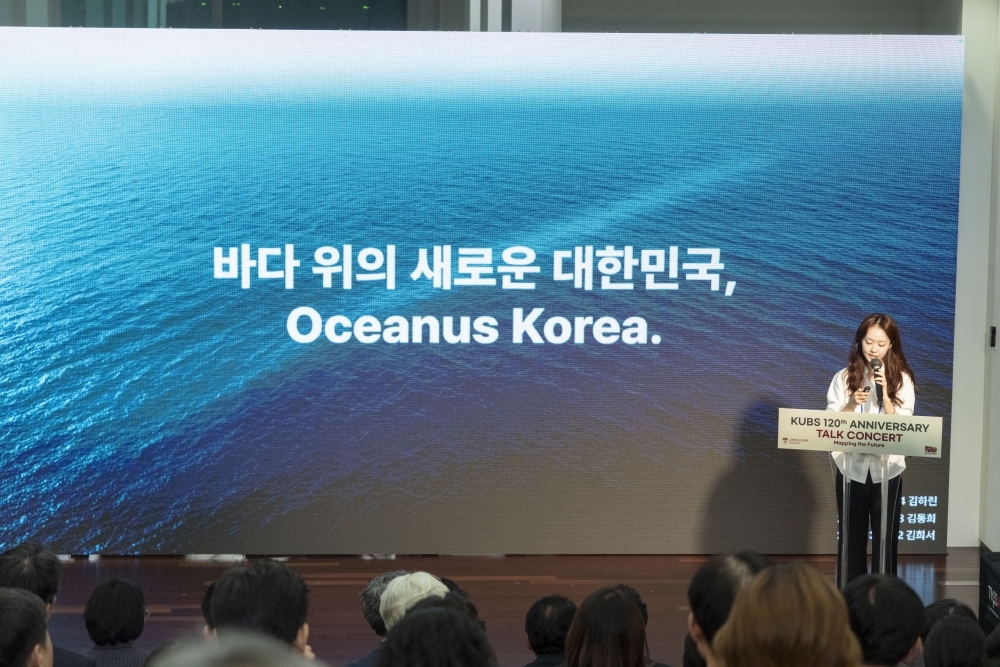
Other presentations included Eduvantage, proposing educational innovation through AI; Vf, exploring the role of AI in reshaping corporate management paradigms; GetSetGo, introducing a new service model to prepare for death; and PLAN D, outlining future business strategies based on space technology. The students’ bold and creative ideas vividly demonstrated how the Business School remains closely connected to the challenges and possibilities of the future society.
Shaping the Future Together: Expert Panel Talk
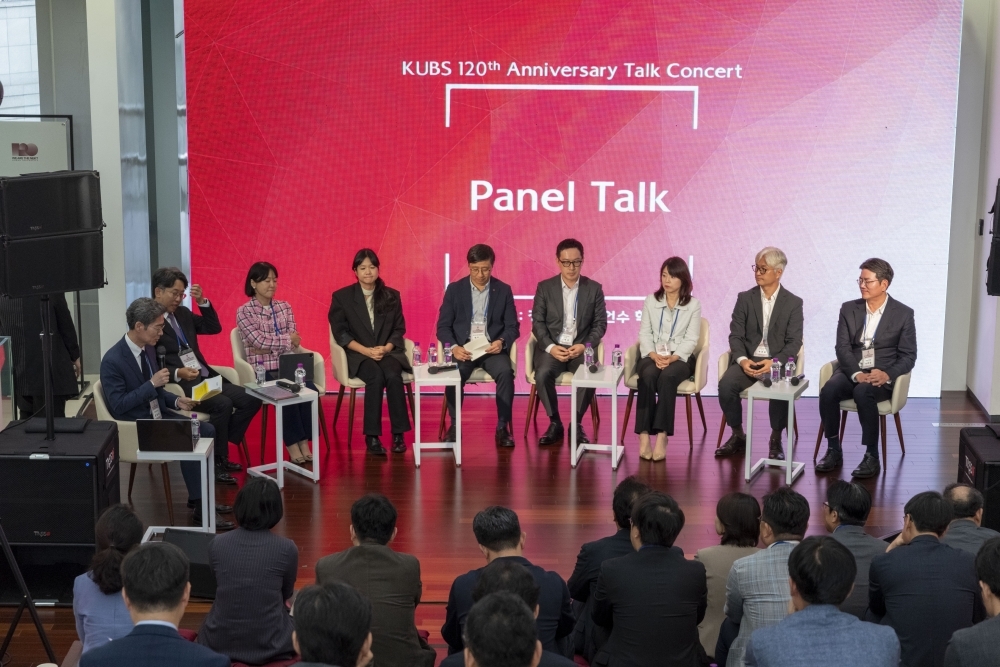
The second part of the event featured a panel talk with leading experts. Participants included Taeseung Kwak, CEO of Hyunbo Corp; Minjung Kim, Professor at Korea University Business School; Heecheon Kim, Head of the Lotte Human Resources Development Institute; Seonhwa Shin, CEO of UCK; Junho Woo, CEO of Woo & Partners; Donggeon Lee, CEO of MyRealTrip; Joon Chae, Chair of the Korean Association of Graduate Schools of Business and Dean of Seoul National University Business School; and Jaehwa Choi, CEO of Bunjang (Bungaejangter).
CEO Kwak shared, “For forty years, our company has grown on a foundation of traditional manufacturing, including auto parts. Now, we are expanding into the secondary battery sector with the goal of becoming a 100-year company.” He added, “Listening to the students’ presentations, I was intrigued by how AI could potentially replace human tasks such as talent development and organizational management.”
CEO Lee remarked, “No matter how the business landscape changes, it is essential to ride the wave first,” adding, “Today’s discussions reaffirmed the importance of having a mindset that embraces new opportunities without hesitation.
Junho Woo, CEO of Woo & Partners, remarked, “I have witnessed how the flow of capital—beginning with cryptocurrency—has continuously evolved and expanded into new forms. No matter how sophisticated systems become, the final decision always rests with people. That is why, going forward, individuals with insight and leadership will become even more crucial.”
Jaehwa Choi, CEO of Bunjang (Bungaejangter), shared, “During my time at Google, I experienced a culture without hierarchical bosses, where everyone was free to pursue what they wanted and collaborate to solve problems. In the future, job boundaries will continue to blur, and organizations are likely to be restructured around shared challenges and problem-solving.”
Seonhwa Shin, CEO of UCK, noted, “Only one out of ten companies survives beyond 60 years, and most fail to last even 20. Just as Samsung ventured into semiconductors despite initial skepticism, fostering an environment where opinions can flow freely from the bottom up and maintaining a horizontal organizational culture will be key to corporate longevity.”
Heechun Kim, Director of the Lotte Human Resources Development Institute, emphasized, “There is still a shortage of people who think with the mindset of a founder—those who truly consider what customers need. When individuals from diverse majors and backgrounds learn together, they can grow into genuine global talent, and creating such an environment is fundamental to nurturing future leaders.”
Joon Chae, Chair of the Korean Association of Graduate Schools of Business, advised, “What students must learn is that no one can accomplish everything alone. Through group experiences, gaining an appreciation for the value of cooperation and coordination will become an essential asset in any future organization.”
Professor Minjung Kim emphasized, “In the age of AI, information and predictive capabilities are likely to become increasingly leveled. Therefore, the ability to reinterpret problems from one’s own perspective and to solve them creatively will be what truly sets individuals apart. The importance of innovation, just as in the past, will remain unchanged.”
The event continued under the moderation of Dean Eunsu Kim, featuring active discussion and the exchange of diverse perspectives on the future of society. Bringing together students’ creative ideas and experts’ insights, the talk concert concluded as a meaningful forum exploring how the Business School can prepare for the next 60 years.
A Toast to the Future: Indoor Garden Party Reception
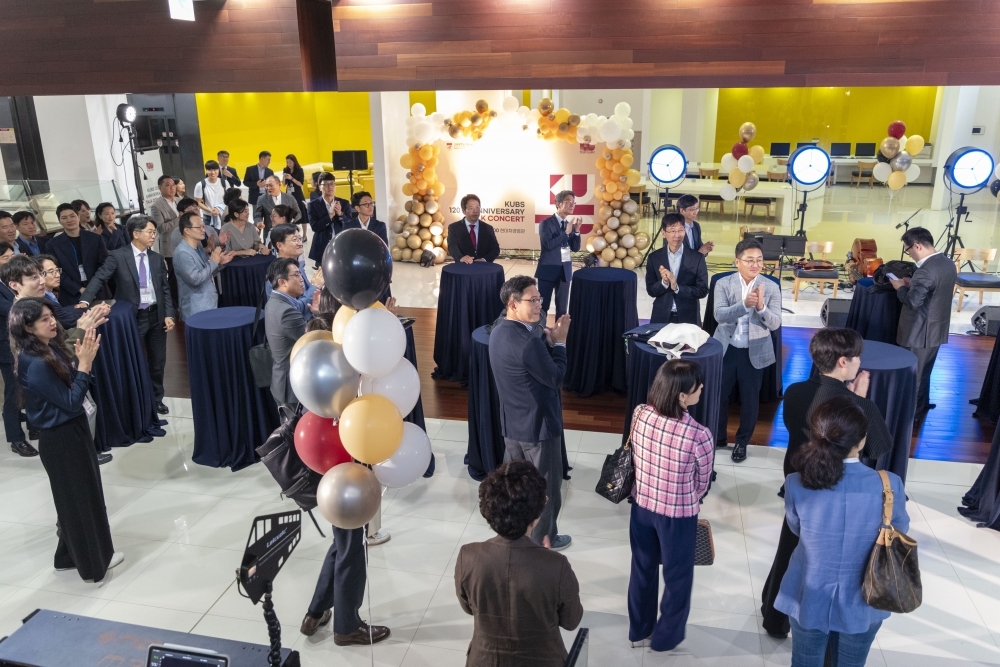
The lively discussions continued into the Indoor Garden Party held on the B1 level. The session was hosted by Associate Dean Hyunseung Nah, with congratulatory remarks delivered by Alumni Association Chair Young-Seop Lee and Heechun Kim, Director of the Lotte Human Resources Development Institute.
Chair Lee emphasized, “We must respond flexibly to changing circumstances while remaining deeply attuned to the values that should never change.” Director Kim opened the evening with a toast, declaring, “Our future is what we make.”
Far more than a simple dinner, the Garden Party served as an extended networking forum that brought together students, faculty, alumni, and industry leaders. Building on the talk concert that reflected on 120 years of history and envisioned the next 60, the gathering offered a space for free and meaningful exchange, where participants experienced both the academic tradition and the vibrant community of the Business School.


